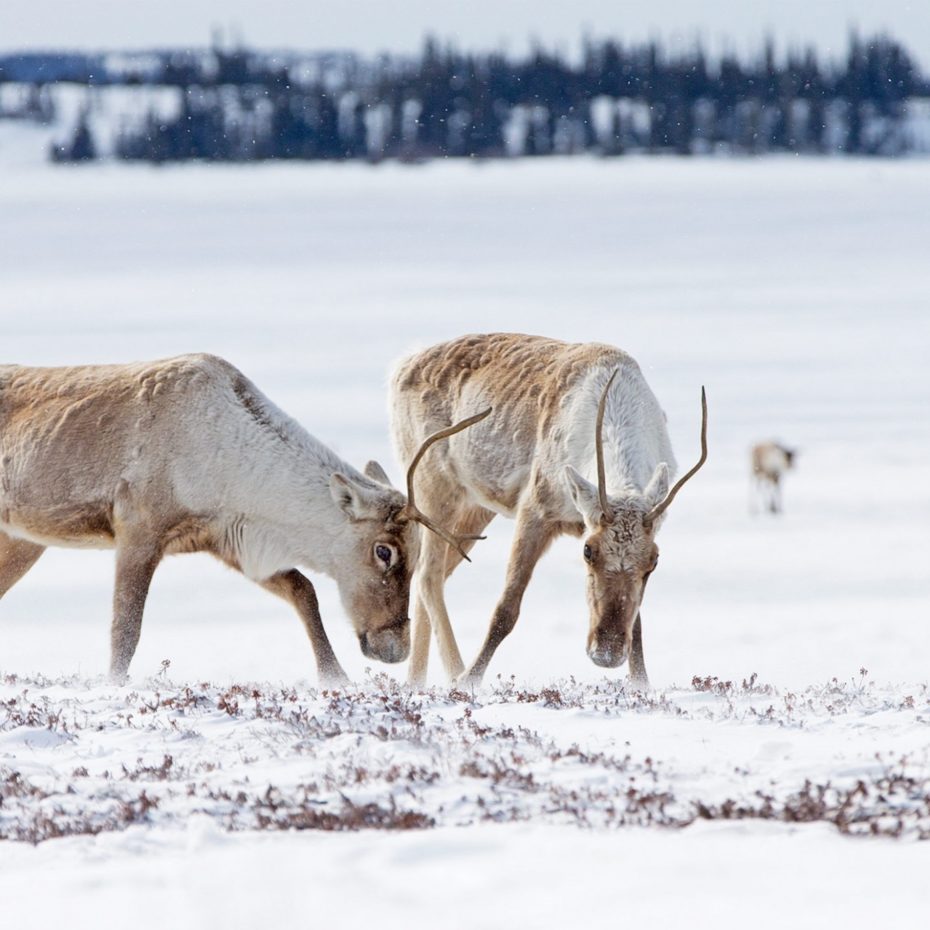ARCTIC HAVEN: CARIBOU EXTINCTION A REALITY?
Arctic Haven

Arctic Haven
June 12, 2018 | Arctic Haven
Caribou in North America are in trouble - development, changing climates, unregulated hunting and recently, facebook meat sales are decimating herds across the Arctic. Richard gives insight on the topic.
There are seventeen different herds of caribou scattered all across the Canadian north from Labrador to the Yukon. Most of the herds have a twice annual migration where they over winter in protected areas south of the tree line. Come spring they head north to calf and spend the summer. The herd that migrates past Arctic Haven Lodge, the Qamanirjuag caribou, over winter in northern Saskatchewan and/or Manitoba. In April, depending on the weather conditions, the caribou walk north out of the trees almost all the way to the Arctic Ocean to calf and spend the summer. Our experience has been that in the spring the caribou are like pilgrims “on a mission”. They walk northward with a purpose in groups of 10 to several thousand. They arrive in a rush and in two weeks it is all over, the are gone. During the summer there are always a few resident caribou around the lodge, ones that for whatever reason decided that it was not necessary to walk so far! In the fall, as they migrate back south, the situation is different. The caribou are healthier looking, they stroll along, feeding and taking their time. No rush at all. The autumn caribou migration generally sees caribou within the vicinity of Arctic Haven for more than one month, feeding as much as possible on the tree-line before heading south for the winter.


In December 2016, the Committee on the Status of Endangered Wildlife in Canada, a body made up of about 50 scientists, classified the Barren-ground caribou as “Threatened”. The Baffin Herd has lost 98% of it population in less than 20 years. The Bathurst herd is only 5% of the population in the 1980s. The Qamanirjuaq herd, still perhaps the healthiest, is down to 250,000 animals, about a 40% decline. This is beyond threatened. Can a wildlife population survive a decline of more than 50%? Probably not.

There are various reasons and theories for the decline. Climate change with warmer winters produce more snow making it difficult to feed, and rain creates layers of ice that are hard for the caribou to penetrate. Thinner ice makes migrations across water dangerous and difficult. Industrial development and human traffic has increased. Hydroelectric dams and roads disrupt migration. Mineral exploration is also a disruption.

Finally there is unregulated hunting with almost no harvest information. The new-age phenomena of selling caribou meat via Facebook and the Internet drives hunting that is not for personal consumption. This practice is un-wittingly aided by northern airlines that offer discounted rates for shipping “country” foods such as caribou meat, seal meat, fish and more. This practice is decimating the caribou herds. People are now selling meat over Facebook as a source of revenue. Without any proper management in place, the caribou populations will soon become extinct. The Qamanirijuaq caribou herd that visits Arctic Haven is one of the last great migrations in North America.Tourism based initiatives for viewing caribou such as that at Arctic Haven are the only effective means to ensure survival of the caribou herds. Without proper management in place, caribou will cease to be around for future generations.
Richard Weber is a co-owner of Arctic Haven and has spent more than 30 years in Canada’s Arctic.
We understand that booking a trip like this is a big endeavour. Please reach out to us with any questions that you might have regarding your upcoming adventure.